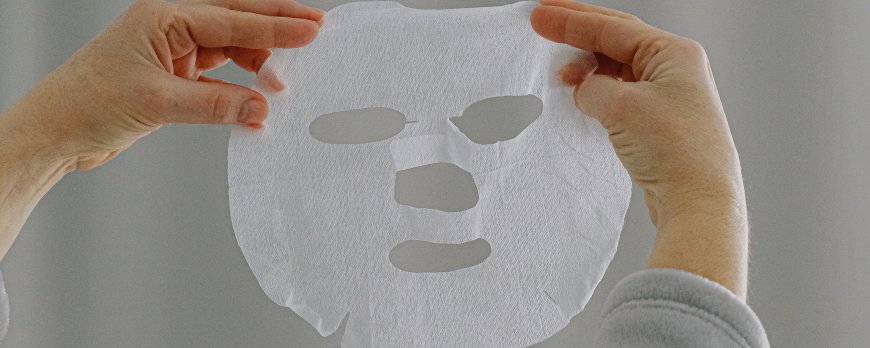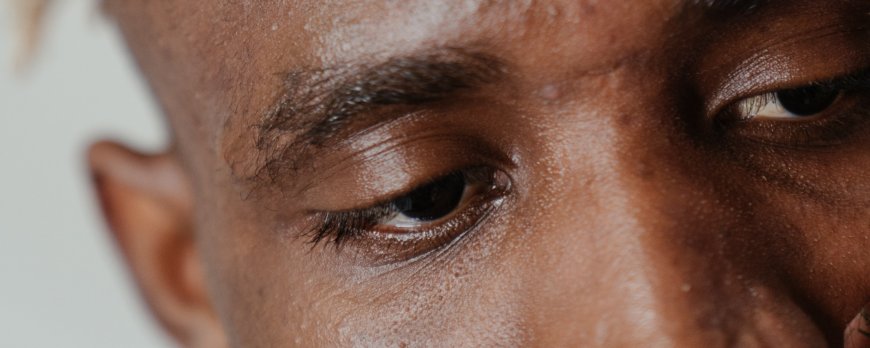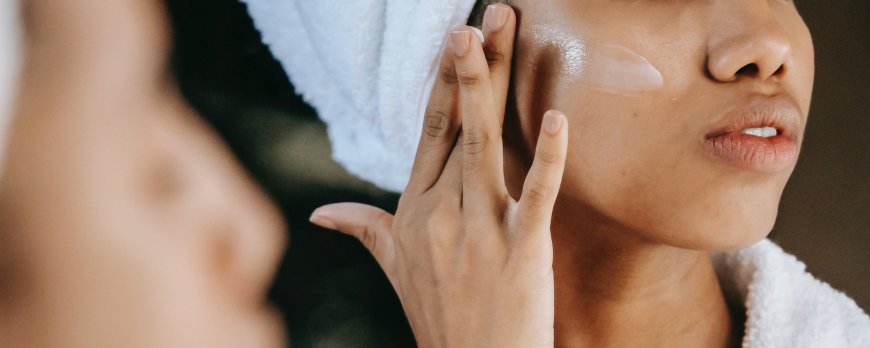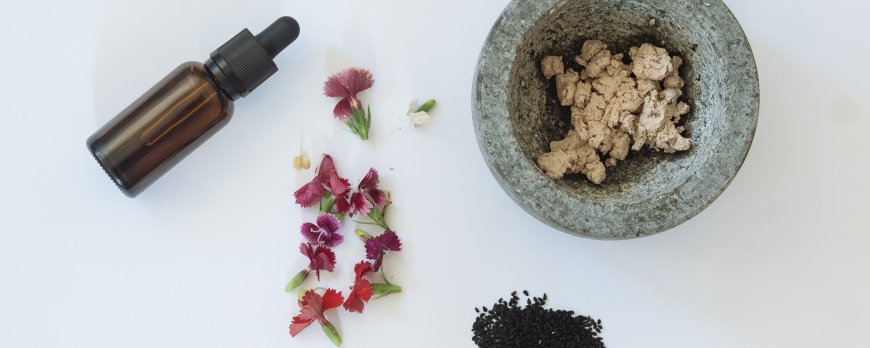How does skin age over time?
Unlock the mysteries of your complexion with our guide on 'How does skin age over time?'. Get insights into the science behind the aging process.

How does skin age over time?
Skin aging is a natural phenomenon that occurs over time due to a combination of intrinsic and extrinsic factors. Intrinsic aging is caused by the biological aging of cells and the accumulation of damaging products of cellular metabolism. Estrogen levels also play a role in maintaining skin integrity, particularly in women. Extrinsic aging is influenced by environmental insults such as exposure to ultraviolet (UV) light, pollution, and smoking. These factors contribute to the degeneration of the skin's structure and function, leading to various signs of aging.
Key Takeaways:
- The aging process of the skin is a natural occurrence influenced by both intrinsic and extrinsic factors.
- Intrinsic aging is caused by biological changes within cells and the accumulation of cellular waste products.
- Estrogen levels in women affect skin integrity and aging.
- Extrinsic factors like UV light, pollution, and smoking contribute to skin aging.
- Aging skin undergoes structural and functional changes, including thinning, decreased collagen and elastin production, reduced sweat and oil production, and changes in sensory perception and permeability.
- Common signs of aging skin include dryness, itching, increased bruising, wrinkles, age spots, skin tags, and an increased risk of skin cancer.
- Preventing skin aging involves protecting the skin from sun exposure, maintaining hydration, using moisturizers, and avoiding tobacco.
Understanding Intrinsic Aging
Intrinsic aging, also known as chronological or natural aging, is a gradual process that affects the skin at a cellular level. As we age, our cells undergo biological changes that contribute to the aging of our skin. One of the key factors in intrinsic aging is the buildup of damaging products of cellular metabolism, which can lead to the deterioration of skin integrity.
Biological aging manifests in various ways, including a decreased turnover rate of our skin cells. This means that the process of shedding dead skin cells and generating new ones slows down, resulting in a dull and less vibrant complexion. Additionally, as we age, the production of collagen and elastin, two proteins responsible for the strength and elasticity of our skin, decreases. The loss of collagen and elastin contributes to the formation of wrinkles and fine lines.
Estrogen, a hormone that plays a crucial role in maintaining skin integrity, also declines as we age. In women, the decrease in estrogen levels during menopause can lead to a thinning of the skin, making it more susceptible to damage and dehydration.
Understanding Intrinsic Aging:
- Gradual process affecting the skin at a cellular level
- Biological aging results in decreased turnover rate of skin cells
- Loss of collagen and elastin contributes to wrinkles and fine lines
- Decline in estrogen levels affects skin integrity, especially in women
While intrinsic aging is a natural part of the aging process, there are steps we can take to maintain the health and vitality of our skin. Protecting our skin from environmental stressors, such as sun exposure, pollution, and smoking, can help slow down the aging process. Additionally, incorporating a skincare routine that includes moisturization, exfoliation, and the use of products with ingredients like retinoids and hyaluronic acid can support the skin's natural functions and minimize the signs of aging.
By understanding the process of intrinsic aging and taking proactive measures to care for our skin, we can help promote skin health and preserve its youthful appearance for as long as possible.
Exploring Extrinsic Aging
Extrinsic aging is primarily caused by environmental factors that accelerate the aging process of the skin. These external insults include exposure to ultraviolet (UV) light, pollution, and smoking. The damaging effects of UV light from the sun are well-known, as it leads to the production of free radicals that cause oxidative stress and damage to the skin cells. Prolonged exposure to UV rays can result in the breakdown of collagen and elastin, leading to wrinkles, sagging skin, and age spots.
Pollution, particularly air pollution, is another significant contributor to extrinsic skin aging. Fine particulate matter in the air, such as dust, soot, and other pollutants, can penetrate the skin and generate free radicals that cause inflammation, collagen degradation, and skin barrier dysfunction. This can lead to premature aging signs such as dullness, uneven texture, and an increase in fine lines and wrinkles.
Smoking is yet another environmental factor that accelerates skin aging. The chemicals present in tobacco smoke can constrict blood vessels and reduce blood flow to the skin, depriving it of oxygen and essential nutrients. This can result in skin dryness, loss of elasticity, and the formation of deep wrinkles and fine lines.
The impact of environmental insults on the skin:
- Exposure to UV light leads to collagen and elastin breakdown, causing wrinkles and age spots.
- Pollution can penetrate the skin, leading to inflammation, collagen degradation, and dullness.
- Smoking constricts blood vessels, depriving skin of oxygen, leading to dryness and wrinkles.
It's important to protect the skin from these environmental insults to maintain a youthful appearance and overall skin health. Applying broad-spectrum sunscreen with a high SPF, even on cloudy days, can shield the skin from harmful UV rays. Additionally, adopting a skincare routine that focuses on gentle cleansing and incorporating antioxidant-rich products can help combat the damaging effects of pollution. Quitting smoking or avoiding exposure to secondhand smoke is crucial for preventing accelerated skin aging.
By understanding the impact of environmental factors and taking preventative measures, we can protect our skin from extrinsic aging and maintain a healthy, youthful complexion.

Structural and Functional Changes
As the skin ages, it undergoes several structural and functional changes that contribute to the visible signs of aging. These changes are influenced by both intrinsic and extrinsic factors. Intrinsic aging, also known as biological aging, is a natural process that occurs over time. It is characterized by a decrease in the turnover rate of cells and the buildup of damaging products of cellular metabolism. Additionally, estrogen levels play a role in maintaining skin integrity, particularly in women.
Extrinsic aging, on the other hand, is caused by environmental insults that the skin is exposed to on a daily basis. One of the primary external factors is ultraviolet (UV) light from the sun, which can lead to the breakdown of collagen and elastin, key proteins responsible for maintaining the skin's structure and elasticity. Exposure to pollution and smoking can also contribute to extrinsic aging, as they generate free radicals that damage the skin and accelerate the aging process.
The structural and functional changes experienced by aging skin can manifest in various ways. For instance, the skin becomes thinner and more fragile, making it more prone to injuries and slower to heal. The production of collagen and elastin decreases, resulting in a loss of firmness and elasticity. Sweat and oil production also decrease, leading to drier skin. Additionally, neurosensory perception may change, affecting the skin's ability to sense touch and temperature. The permeability of the skin barrier may also be compromised, making it more susceptible to irritants and allergens.
These structural and functional changes in the skin contribute to the visible signs of aging. Dryness, itching, and increased bruising are common occurrences. The loss of collagen and elastin leads to the formation of wrinkles and fine lines. Age spots, also known as hyperpigmentation, may also appear. Skin tags, small benign growths, can also become more prevalent with age. Moreover, the risk of skin cancer increases as the skin becomes more susceptible to damage from UV radiation.
To maintain skin health as it ages, it is important to protect it from further damage and provide essential care. This includes minimizing sun exposure, using broad-spectrum sunscreen, staying hydrated to combat dryness, and practicing regular moisturization. It is also crucial to adopt a healthy lifestyle, including a balanced diet, stress management, and avoiding tobacco. By taking these preventative measures, individuals can help slow down the structural and functional changes that occur in aging skin and maintain its overall health and appearance.
Signs of Aging Skin
Aging skin manifests various signs that are indicative of the natural aging process and environmental influences. As we age, our skin becomes more prone to dryness, itching, bruising, wrinkles, age spots, skin tags, and an increased risk of skin cancer. These signs can be attributed to both intrinsic and extrinsic factors that impact the structure and function of the skin.
Here are some common signs of aging skin:
- Dryness: Aging skin produces less natural oils, leading to dryness and flakiness.
- Itching: Dryness and reduced moisture retention can cause itching and irritation.
- Bruising: The skin's blood vessels become more fragile, resulting in increased bruising and slower healing.
- Wrinkles: The breakdown of collagen and elastin fibers in the skin leads to the formation of wrinkles and fine lines.
- Age spots: Prolonged sun exposure can cause the development of dark spots or patches on the skin.
- Skin tags: Small, benign growths that commonly appear on areas of friction or folds in the skin.
- Skin cancer: Aging skin is more susceptible to the development of skin cancer due to cumulative sun damage and other environmental factors.
While these signs are a natural part of the aging process, there are steps you can take to maintain the health and appearance of your skin as you age. It is essential to protect your skin from sun exposure by wearing sunscreen, seeking shade, and wearing protective clothing. Keeping your skin well-hydrated with moisturizers and drinking plenty of water can help combat dryness and itching. Additionally, adopting a healthy lifestyle, including a nutritious diet and avoiding tobacco, can contribute to overall skin health.
Remember, everyone's skin is unique, and the signs of aging can vary from person to person. Taking care of your skin and implementing a skincare routine that suits your individual needs is crucial for maintaining healthy and vibrant-looking skin as you age.

Factors Influencing Skin Aging
Several factors can influence how quickly or slowly the skin ages, ranging from genetic predispositions to lifestyle choices. Understanding these factors can help individuals make informed decisions about how to care for their skin as it ages.
Genetics
- Genetic factors play a significant role in determining how the skin ages.
- The genes we inherit can affect the rate at which our skin develops signs of aging, such as wrinkles and age spots.
- Some individuals may have a genetic predisposition to produce less collagen and elastin, leading to faster skin aging.
Lifestyle Choices
- The lifestyle choices we make can have a profound impact on the health and appearance of our skin.
- Excessive sun exposure without proper protection can accelerate the aging process and increase the risk of skin cancer.
- Poor diet lacking essential nutrients can also contribute to premature aging of the skin.
- Inadequate sleep, high stress levels, and smoking can all contribute to the breakdown of collagen and elastin, leading to sagging and wrinkles.
Environmental Factors
- Environmental factors such as exposure to pollution and harsh weather conditions can contribute to skin aging.
- Pollution can generate free radicals that damage the skin and accelerate the breakdown of collagen and elastin.
- Extreme temperatures, wind, and dry air can also dehydrate the skin, leading to dryness and wrinkles.
By understanding these factors, individuals can take proactive steps to maintain the health and vitality of their skin as it ages. This includes protecting the skin from sun exposure with sunscreen, adopting a healthy lifestyle with a balanced diet and adequate sleep, and minimizing exposure to environmental pollutants. Additionally, using skincare products that promote hydration and nourishment can help mitigate the effects of aging. Taking care of the skin now can lead to a more youthful and radiant appearance in the long run.
Preventing Skin Aging
While skin aging is inevitable, there are steps you can take to slow down the process and maintain healthier, more youthful-looking skin. Protecting your skin from sun exposure is crucial in preventing premature aging. Make sure to apply sunscreen with a high SPF daily, even on cloudy days, and wear protective clothing and accessories such as hats and sunglasses when you're out in the sun.
Hydration is key to maintaining skin health. Drink plenty of water throughout the day to keep your skin hydrated from the inside out. Additionally, using moisturizers that are suitable for your skin type can help retain moisture and prevent dryness, which can accelerate the aging process.
Making healthy lifestyle choices can also have a significant impact on the aging of your skin. Avoiding tobacco is crucial, as smoking can lead to premature aging and the development of wrinkles. Additionally, maintaining a balanced diet rich in antioxidants and nutrients can support skin health and slow down the aging process. Incorporate plenty of fruits, vegetables, and whole grains into your diet, and limit your intake of processed foods and sugary drinks.
Preventing skin aging:
- Apply sunscreen with a high SPF daily
- Wear protective clothing and accessories when in the sun
- Drink plenty of water to keep your skin hydrated
- Use moisturizers suitable for your skin type
- Avoid tobacco to prevent premature aging
- Maintain a balanced diet rich in antioxidants
Incorporating these preventive measures into your daily routine can help slow down the aging process and promote healthier, more resilient skin. Remember that it's never too late to start taking care of your skin, and the earlier you begin, the better the results will be in the long run.

Natural Ways to Slow Down Skin Aging
In addition to preventive measures, there are natural remedies and practices that can help slow down the skin aging process. By incorporating these into your daily routine, you can maintain a youthful and vibrant complexion. Here are some key strategies to consider:
- Follow a healthy diet: A nutritious diet rich in fruits, vegetables, lean proteins, and healthy fats can nourish your skin from within. Include foods that are high in antioxidants, such as berries, leafy greens, and nuts, as they help protect your skin from free radicals and oxidative stress.
- Engage in regular exercise: Physical activity not only keeps you fit, but it also benefits your skin. Exercise improves circulation, which promotes the delivery of oxygen and nutrients to the skin cells. It also helps maintain collagen production, keeping your skin firm and supple.
- Establish a skincare routine: Developing a consistent skincare regimen is crucial for maintaining healthy and youthful-looking skin. Cleanse your face twice a day to remove dirt and impurities, followed by moisturization to keep your skin hydrated. Incorporate products with retinoids and hyaluronic acid to stimulate collagen production and improve skin elasticity.
- Protect your skin with antioxidants: Antioxidants are essential for neutralizing free radicals and preventing damage to your skin cells. Look for skincare products that contain ingredients like vitamin C, green tea extract, or grape seed extract, which are known for their antioxidant properties.
- Don't forget the sunscreen: Sun protection is paramount in preventing premature skin aging. Apply a broad-spectrum sunscreen with at least SPF 30 every day, even on cloudy days. This will guard your skin against harmful UV radiation and help prevent wrinkles, age spots, and other signs of sun damage.
By implementing these natural remedies and practices into your lifestyle, you can slow down the skin aging process and maintain a youthful appearance. Remember, consistency is key when it comes to skincare, so make these habits a part of your daily routine for long-term benefits.
Skincare Tips for Aging Skin
Proper skincare is crucial for maintaining the health and appearance of aging skin. As we age, our skin undergoes various changes, such as decreased collagen and elastin production, reduced oil and sweat production, and a slower turnover rate. To combat these effects and keep your skin looking its best, here are some essential skincare tips:
1. Moisturization
One of the most important steps in skincare for aging skin is proper moisturization. Aging skin tends to be drier and more prone to dryness-related issues like itching and flaking. Therefore, using a rich moisturizer can help replenish the skin's moisture barrier and keep it hydrated. Look for moisturizers that contain ingredients like hyaluronic acid and ceramides, as they effectively lock in moisture and improve the skin's overall hydration.
2. Exfoliation
Exfoliation is another essential step for maintaining the health of aging skin. As we age, our skin's natural exfoliation process slows down, leading to a buildup of dead skin cells on the surface. This can result in a dull and lackluster complexion. Regular exfoliation helps remove these dead skin cells, revealing a brighter and smoother skin texture. Opt for gentle exfoliants that contain alpha-hydroxy acids (AHAs) or beta-hydroxy acids (BHAs) to avoid excessive irritation.
3. Retinoids and Hyaluronic Acid
Retinoids and hyaluronic acid are two powerful ingredients that can greatly benefit aging skin. Retinoids, such as retinol and retinoid acid, are known for their ability to stimulate collagen production, reduce the appearance of wrinkles, and improve skin texture. Hyaluronic acid, on the other hand, is a hydrating powerhouse that helps plump up the skin and diminish the appearance of fine lines. Incorporating products containing these ingredients into your skincare routine can help combat signs of aging and improve overall skin health.
4. Sunscreen
Avoiding sun damage is crucial in the fight against aging skin. UV rays can accelerate the aging process, leading to wrinkles, age spots, and an increased risk of skin cancer. Applying broad-spectrum sunscreen with at least SPF 30 daily, even on cloudy days, is essential to protect your skin from harmful UV rays. Look for sunscreens that are lightweight and non-comedogenic, ensuring they won't clog your pores or feel heavy on the skin.
By following these skincare tips, you can help slow down the aging process and keep your skin looking healthy and radiant. Remember to always consult with a dermatologist or skincare professional to determine the best routine and products for your specific skin concerns.

Understanding Skin Aging Remedies
There are several skin aging remedies available, ranging from non-invasive treatments to more invasive cosmetic procedures. These options aim to address various signs of aging and restore a more youthful appearance. Here's a closer look at some common skin aging remedies:
1. Dermal Fillers:
- Dermal fillers are injectable substances that help plump up the skin, filling in wrinkles, fine lines, and areas of lost volume.
- They can be used to enhance facial contours, restore youthful fullness, and improve the appearance of sagging skin.
- Common filler substances include hyaluronic acid, calcium hydroxylapatite, and poly-L-lactic acid, each with its specific benefits and duration.
2. Laser Treatments:
- Laser treatments use specialized beams of light to target specific skin concerns, such as wrinkles, age spots, and uneven skin tone.
- These procedures can stimulate collagen production, promote skin tightening, and improve overall skin texture and appearance.
- There are different types of lasers available, including ablative lasers that remove the outer layer of skin and non-ablative lasers that work beneath the surface.
3. Chemical Peels:
- Chemical peels involve the application of a chemical solution to the skin, which exfoliates the outer layers and stimulates new cell growth.
- They can improve the appearance of fine lines, wrinkles, uneven pigmentation, and acne scars.
- The depth of the peel can vary, from light peels that target the outermost layer of skin to deep peels that penetrate into the middle layers.
These are just a few examples of the skin aging remedies available. It's essential to consult with a qualified dermatologist or cosmetic surgeon to determine the most suitable treatment plan for your specific concerns and desired outcome. They can evaluate your skin condition, discuss the potential risks and benefits of each option, and recommend the best approach to achieve the desired rejuvenation.
The Importance of Regular Skin Check-ups
Regular skin check-ups and self-examination are vital for detecting potential skin issues, including skin cancer, at an early stage. Taking proactive steps to monitor the health of your skin can lead to early detection and prompt treatment, significantly improving the chances of successful outcomes.
During a skin check-up, a dermatologist will carefully examine your skin, looking for any abnormalities, irregularities, or suspicious moles. They are trained to identify early signs of skin cancer that may not be evident to the untrained eye. In addition to a visual examination, they may also perform a tactile examination, using their hands to feel for any changes in texture or thickness on the skin's surface.
Self-examination is equally important and can be done at home on a regular basis. By familiarizing yourself with the normal appearance of your skin, you become more attuned to any changes that may occur. It's recommended to perform self-examinations in a well-lit room using a full-length mirror, looking for any new or changing moles, growths, or lesions. Pay attention to any changes in size, shape, color, or texture, and make note of any areas that appear abnormal or concerning.
Early detection is key in the successful treatment of skin cancer. If you notice any unusual or concerning skin changes during self-examination or between regular check-ups, it's important to consult with a dermatologist promptly. They can evaluate the area of concern and perform further tests, such as a skin biopsy, if necessary, to determine if skin cancer is present.
Conclusion
Understanding how the skin ages and implementing preventive measures and a skincare routine can help maintain healthier, more youthful-looking skin as we get older. The skin ages over time due to a combination of intrinsic and extrinsic factors. Intrinsic aging is caused by the biological aging of cells and the buildup of damaging products of cellular metabolism. Estrogen levels also play a role in maintaining skin integrity, particularly in women.
Extrinsic aging, on the other hand, is caused by environmental insults such as exposure to ultraviolet (UV) light, pollution, and smoking. These external factors can accelerate the aging process and contribute to the development of wrinkles, age spots, and other signs of aging.
Aging skin experiences structural and functional degeneration, including thinning, slower turnover rate, decreased collagen and elastin production, reduced sweat and oil production, and changes in neurosensory perception and permeability. These changes can result in dryness, itching, increased bruising, and a higher risk of skin cancer.
To maintain healthy skin as it ages, it is important to protect it from sun exposure, stay hydrated, use moisturizers regularly, and avoid tobacco. These simple steps can help preserve the integrity of the skin and minimize the appearance of aging. Additionally, incorporating a nutritious diet, engaging in regular exercise, establishing a consistent skincare routine, and using antioxidants and sunscreen can also slow down the aging process and promote youthful-looking skin.
FAQ
How does the skin age over time?
The skin ages over time due to a combination of intrinsic and extrinsic factors. Intrinsic aging is caused by biological aging of cells and the buildup of damaging products of cellular metabolism. Estrogen levels also affect skin integrity in women. Extrinsic aging is caused by environmental insults such as exposure to ultraviolet light, pollution, and smoking.
What are the structural and functional changes that occur in aging skin?
Aging skin experiences structural and functional degeneration, including thinning, slower turnover rate, decreased collagen and elastin, reduced sweat and oil production, and changes in neurosensory perception and permeability.
What are the signs of aging skin?
Aging skin is more prone to dryness, itching, bruising, wrinkles, age spots, skin tags, and skin cancer.
What are some factors that influence skin aging?
Skin aging can be influenced by genetics, lifestyle choices, sun exposure, diet, stress levels, and quality of sleep.
How can skin aging be prevented?
Protecting skin from sun exposure, staying hydrated, using moisturizers, making healthy lifestyle choices, and avoiding tobacco are some ways to maintain skin health as it ages.
What are some natural ways to slow down skin aging?
Incorporating a nutritious diet, engaging in regular exercise, establishing a skincare routine, and using antioxidants and sunscreen can help slow down skin aging.
What are some skincare tips for aging skin?
Skincare tips for aging skin include moisturizing regularly, exfoliating, incorporating retinoids and hyaluronic acid, and using sunscreen.
What are some skin aging remedies?
Skin aging remedies can include cosmetic procedures like dermal fillers, laser treatments, and chemical peels. It's important to consider their effectiveness and potential risks before opting for them.
How important are regular skin check-ups?
Regular skin check-ups and self-examinations are crucial for early detection of skin cancer and other skin conditions. Dermatologists play a significant role in monitoring skin health.


































































































































